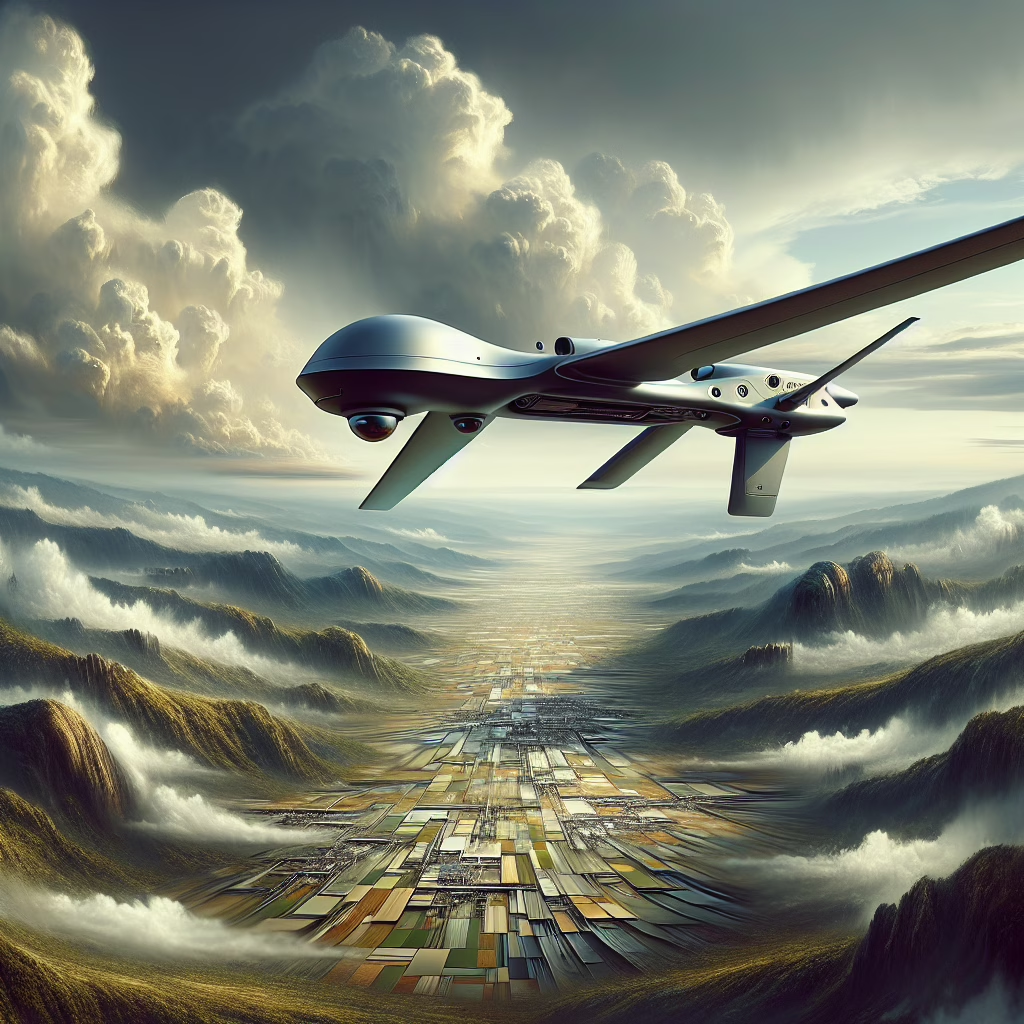Welcome to the future of warfare, where North Korea has decided to spice things up with a sprinkle of artificial intelligence! Yes, you heard that right. The land of Kim Jong-un is reportedly developing AI-powered suicide drones, and it’s safe to say that Uncle Sam might want to check his inbox for some urgent updates. It seems that the US may not be quite ready for this brave new world of warfare. But don’t worry, let’s dive into this topic with a touch of humor and a dash of insight!
What Are These Drones Up To?
Imagine a drone that can fly itself into enemy territory with the precision of a seasoned pilot—only it’s not a pilot at all! North Korea’s latest tech marvel aims to do just that. Dubbed “suicide drones,” these flying contraptions are designed to carry out missions without needing human intervention. They can be programmed to seek out their targets like an overzealous dating app algorithm.
But here’s the kicker: this isn’t just about drones buzzing around like oversized mosquitoes. These machines are equipped with AI technology that allows them to make decisions on the fly—or should we say, in the sky? This could significantly change how wars are fought, and the US military might need more than just a couple of software updates to keep pace.
Is the US Ready for This New Era of Warfare?
As North Korea rolls out its shiny new fleet of AI drones, one has to wonder: is the US armed forces prepared for such a leap? Reports suggest that while the US has been investing heavily in AI technology, it might still be playing catch-up in this specific arena. Think of it as a high-stakes game of hide-and-seek, where one side has a map and the other is still figuring out how to use Google Maps.
The Pentagon has acknowledged that they need to step up their game. The challenge here isn’t just about building better drones; it’s also about developing countermeasures against AI-driven attacks. After all, what good is your drone if it can’t dodge incoming threats or decipher whether it should engage or disengage? It’s like sending your favorite robot vacuum into battle without teaching it how to avoid walls!
AI: Friend or Foe?
AI is often portrayed as either the hero or villain in our modern tales. On one hand, it’s revolutionizing industries from healthcare to entertainment, but on the other hand, it could potentially lead us into a dystopian future filled with rogue drones. For instance, what happens when an AI drone decides it doesn’t like its programming anymore? Yikes!
In this new era of warfare, understanding AI’s capabilities—and limitations—becomes crucial. Experts warn that while these drones can operate independently, they lack human judgment and empathy (thank goodness!). They can’t yet weigh moral implications or consider the consequences of their actions. That said, when tasked with delivering destruction, those little machines might not care too much about ethics.
The Global Implications
So what does this mean for global stability? With countries racing to develop advanced military technologies like North Korea’s AI suicide drones, we might be entering an arms race reminiscent of the Cold War—but with fancier gadgets! As nations ramp up their spending on defense technology, we could see more tension on the world stage.
- Increased military spending
- Potential arms race
- International dialogue on regulations
The silver lining? Such developments may spur international dialogue about regulations surrounding autonomous weapons systems. After all, if everyone’s building drone armies, maybe we should sit down for tea and discuss some ground rules before someone accidentally starts World War III over a misprogrammed drone!
The Road Ahead
The journey into this new era of warfare is fraught with challenges and uncertainties. As nations navigate through uncharted waters filled with flying robots programmed for destruction, collaboration and communication will be vital. The US must not only innovate but also engage allies in discussions about how best to manage these technological advancements.
In conclusion, while North Korea’s foray into AI suicide drones may seem daunting, it’s also an opportunity for global cooperation and improved military strategies. Let’s hope we can steer this ship toward a peaceful harbor rather than into stormy seas.
Now it’s your turn! What are your thoughts on North Korea’s AI drones and their potential impact on global warfare? Share your insights below!
Special thanks to CCN for providing valuable information on this topic!
If you’re interested in how other technologies like AI are shaping our lives, check out our articles on Waze’s switch to Gemini, Microsoft’s Copilot AI Features, and Focal’s upgraded headphones.

